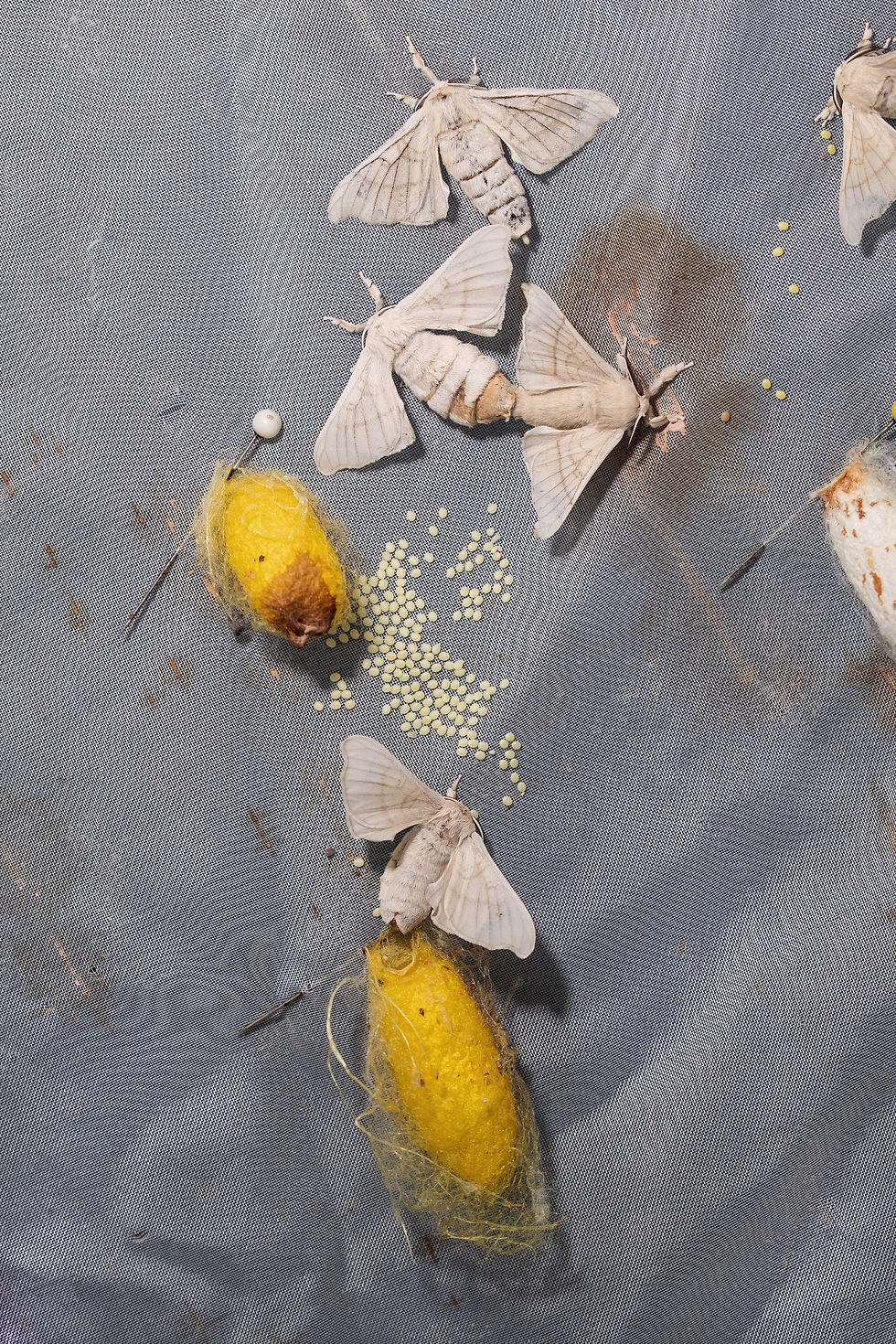LOOKING FOR SILK MANUFACTURERS? TRY THESE ETHICAL ALTERNATIVES
- masalathreads
- Feb 13, 2023
- 4 min read
Silk is a luxurious fabric that has been cherished for centuries for its soft and shimmering texture. However, the production of silk is far from sustainable and environmentally friendly. In this post, we will discuss why using silk is a non-sustainable option and what sustainable alternatives you can use instead.
Environmental impact: Silk production can have a significant impact on the environment. The process of producing silk starts with the cultivation of mulberry trees, which are used as food for silkworms. This type of farming often leads to deforestation and loss of biodiversity, as large areas of land are cleared to make room for the mulberry trees. In addition, the production of silk also requires large amounts of water and pesticides, which can harm both the environment and the health of the workers involved.

Animal welfare concerns: Silk production is a labor-intensive process that requires the mass-rearing of silkworms. The conditions in which these insects are kept can be poor, leading to health problems and reduced life expectancy. Moreover, the process of obtaining silk fibres from the cocoons of silkworms is barbaric and torturous to the insects, as it requires boiling them alive. This raises serious ethical concerns and is a major reason why many consumers are turning away from silk.
Labor issues: Workers are often exposed to hazardous chemicals and substances used in the production process. These factors contribute to the exploitation of workers and are unacceptable from a social and ethical perspective.
Limited resources: The demand for silk is growing, but the amount of land and resources needed to produce it are limited. This leads to potential overproduction and environmental degradation, as well as increased competition for resources and land. In the long run, this could lead to decreased quality of life for both the workers involved in the production process and the local communities affected by the environmental impact.

So, what are the sustainable alternatives to silk? Here are some of the most popular options:
Eri Peace Silk: If you are set on using silk for your brand and have the budget to do so then 'Eri' or Peace silk is a beautiful and really special option. Eri silk is considered ethical because it is produced without killing the silkworm. As previously mentioned, in conventional silk production, the silkworms are boiled or steamed alive inside their cocoons in order to retrieve the long, continuous silk fibers. With eri silk, however, the silkworms are allowed to emerge from their cocoons naturally, which allows the fibres to be collected in a much shorter, broken form. As a result, the silk produced is not as strong as traditional silk, but the process of harvesting it is considered more humane and environmentally friendly.
In addition to the ethical implications of the production process, Eri peace silk is often produced by small-scale farmers and communities in India and other developing countries, who rely on the income generated by their silk production to support their families and communities. By purchasing Eri peace silk products, you are supporting sustainable and equitable production practices, and helping to maintain traditional techniques and knowledge. Masala Threads is proud to have fantastic relationships with local farmers - Eri peace silk manufacturers. We offer a wide range of options.
Tencel: Tencel is a type of lyocell fabric made from wood pulp from sustainable sources. It is soft, smooth, and has a luxurious feel, making it a great alternative to silk. It is also biodegradable, which means it is more environmentally friendly than silk manufacturers.
Linen: Linen is a durable and eco-friendly fabric made from the flax plant. It is breathable, absorbent, and has a natural texture that gives it a unique look and feel. Linen is also biodegradable, which means it is a sustainable alternative to silk.
Hemp: Hemp is a strong and sustainable plant that can be used to produce a variety of fabrics, including silk-like fabrics. Hemp is also naturally anti-microbial, which makes it a great option for those looking for a healthier and more environmentally friendly alternative to silk.

Eco Vero & FSC Viscose: This amazing silk alternatives can come in many different thicknesses and finishes and looks and feels just like silk without the price tag or ethical issues. FSC (Forest Stewardship Council) certified viscose is a type of rayon fabric that has been certified by the Forest Stewardship Council as being produced using wood fibres from responsibly managed forests. The FSC is an international non-profit organization that promotes responsible forest management, and the certification is considered a guarantee that the wood fibres used to produce the viscose were sourced from forests that meet the FSC's strict environmental and social standards.
In conclusion, ordinary silk manufacturers are a non-sustainable option due to its environmental impact, animal welfare concerns, labor issues, and limited resources. If you are looking for a more sustainable alternative, consider using the above options instead or BOOK A CHAT to hear about all the options we offer. By choosing sustainable fabrics, you can make a positive impact on the environment and the lives of those involved in the production process.



Comments